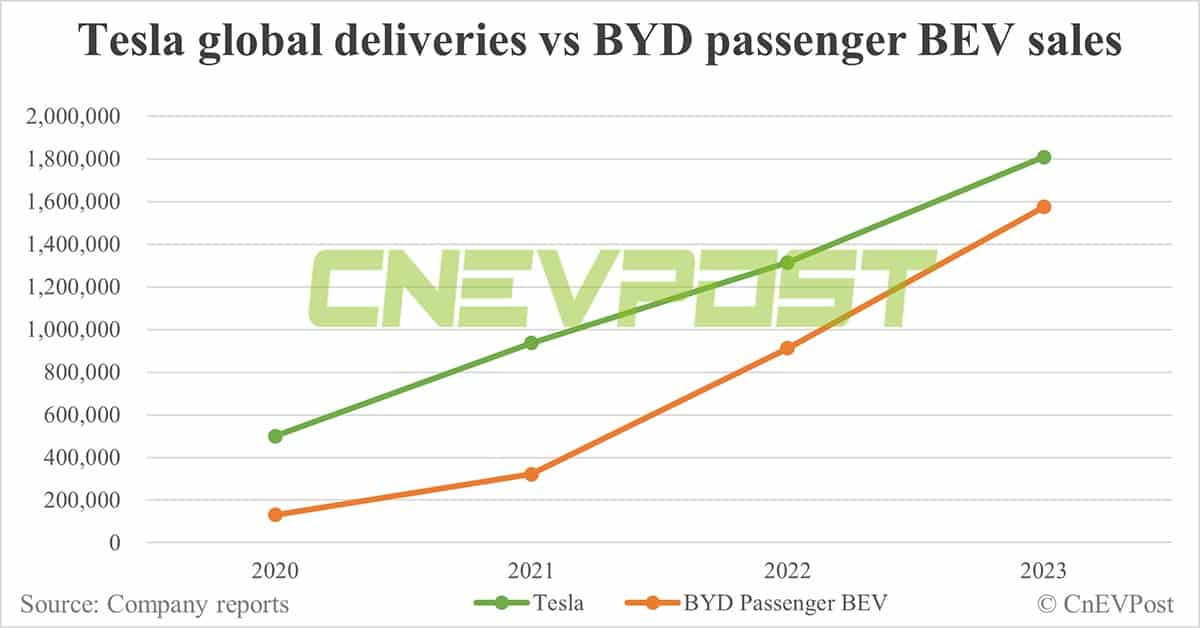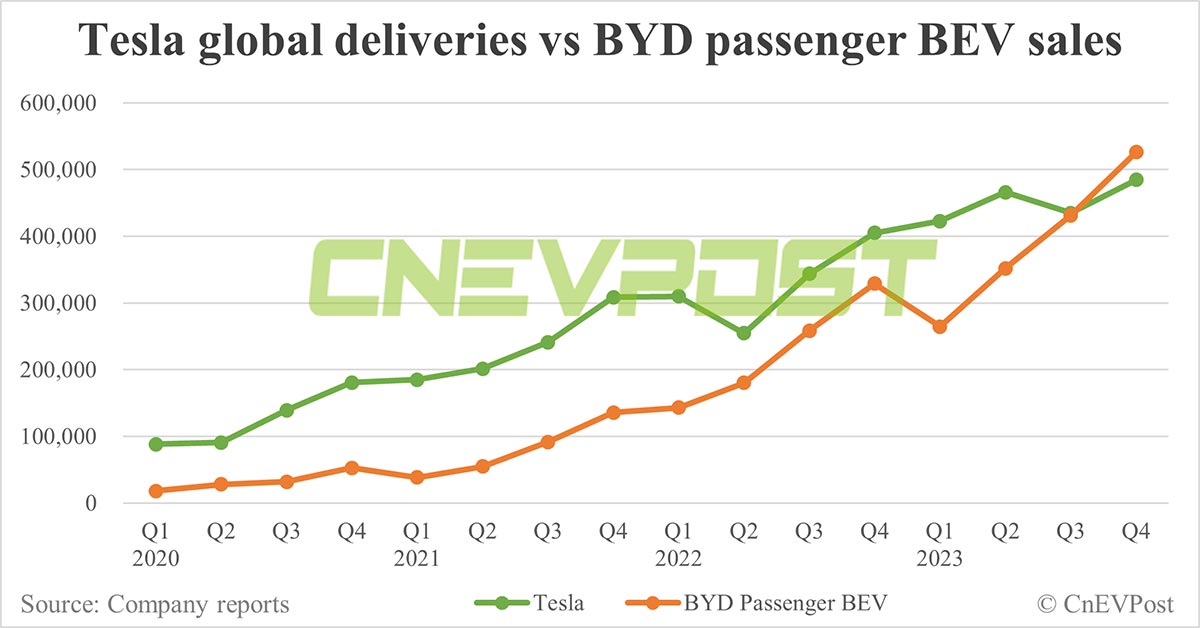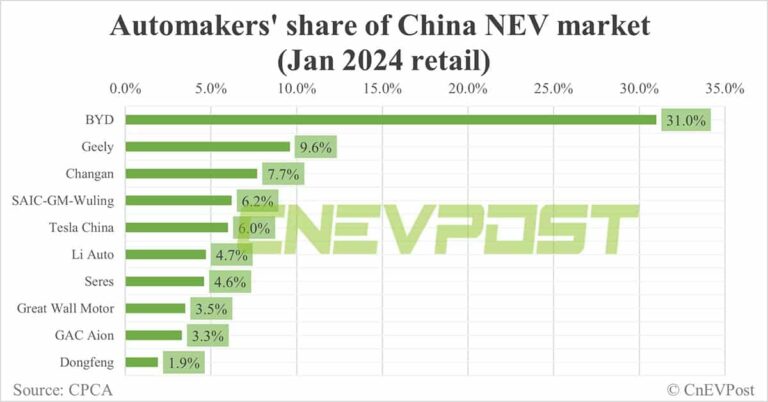Tesla continues to lead the BEV rankings in 2023 with a 19.9 percent market share, followed by BYD with 17.1 percent.
BYD (OTCMKTS: BYDDF) is on track to challenge Tesla (NASDAQ: TSLA) for the battery electric vehicle (BEV) sales crown in 2024, after narrowing the gap in 2023, according to market research firm TrendForce.
Tesla continues to lead the BEV rankings with a 19.9 percent market share in 2023, followed by BYD with 17.1 percent, narrowing the sales gap with Tesla to 248,000 units, according to a TrendForce report today.
This achievement is attributed to BYD's stable sales performance in China and its growing international presence, bolstered by the activation of overseas bases, according to the report.
TrendForce believes BYD has the potential to challenge Tesla's dominance of the BEV market this year.
BYD ceased production and sales of vehicles powered entirely by internal combustion engines in March 2022, switching to a focus on producing BEVs and plug-in hybrid electric vehicles (PHEVs).
For the full year 2023, BYD sold 3,024,417 new energy vehicles (NEVs), including 3,012,906 passenger NEVs and 11,511 commercial NEVs, according to its published figures.
The Chinese NEV maker sold 1,574,822 passenger BEVs and 1,438,084 passenger PHEVs in 2023.
For comparison, Tesla, which only produces BEVs, delivered 1,808,581 units worldwide in 2023.
In the fourth quarter of 2023, BYD's quarterly passenger BEV sales of 526,409 units surpassed Tesla's 484,507 units for the first time.
In the global BEV market, GAC Aion is ranked third with a 5.2 percent share in 2023 and SAIC-GM-Wuling is ranked fourth with a 4.9 percent share, according to TrendForce.
In the global PHEV market, BYD and Li Auto (NASDAQ: LI) clinched the top two positions, with 33.8 percent and 9.6 percent share in 2023, respectively.
Li Auto, which currently sells extended-range electric vehicles (EREVs), will officially launch its first BEV, the Li Mega MPV (Multi-Purpose Vehicle), on March 1.
Li Auto's market share climbed rapidly due to the focus on the mid-to-large SUV segment, targeting family consumers, the TrendForce report noted.
In the global NEV market, which includes BEVs, PHEVs, and fuel cell vehicles, 2023 sales were 13.03 million units, a growth rate of 29.8 percent, according to TrendForce.
This is a significant slowdown from the 54.2 percent growth rate in 2022. Of these, BEVs accounted for 9.11 million units, a growth rate of 24 percent, while PHEVs reached 3.91 million units, a growth rate of 45 percent.
China remains the largest NEV market, accounting for about 60 percent of the global market share.
However, NEV sales growth in China is slowing due to a high base effect, and limited sales growth in other regions cannot make up the gap left by the Chinese market, TrendForce said.
As a result, global NEV sales growth is expected to slow, with sales projected to be 16.87 million units in 2024, a growth rate of 29.5 percent, according to the report.


